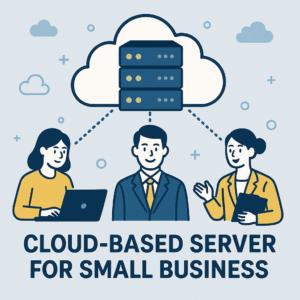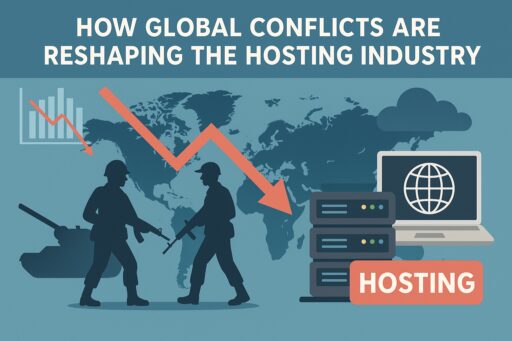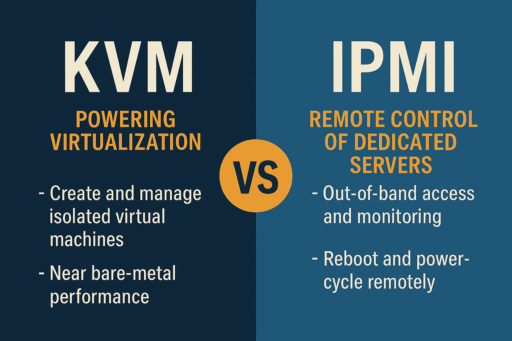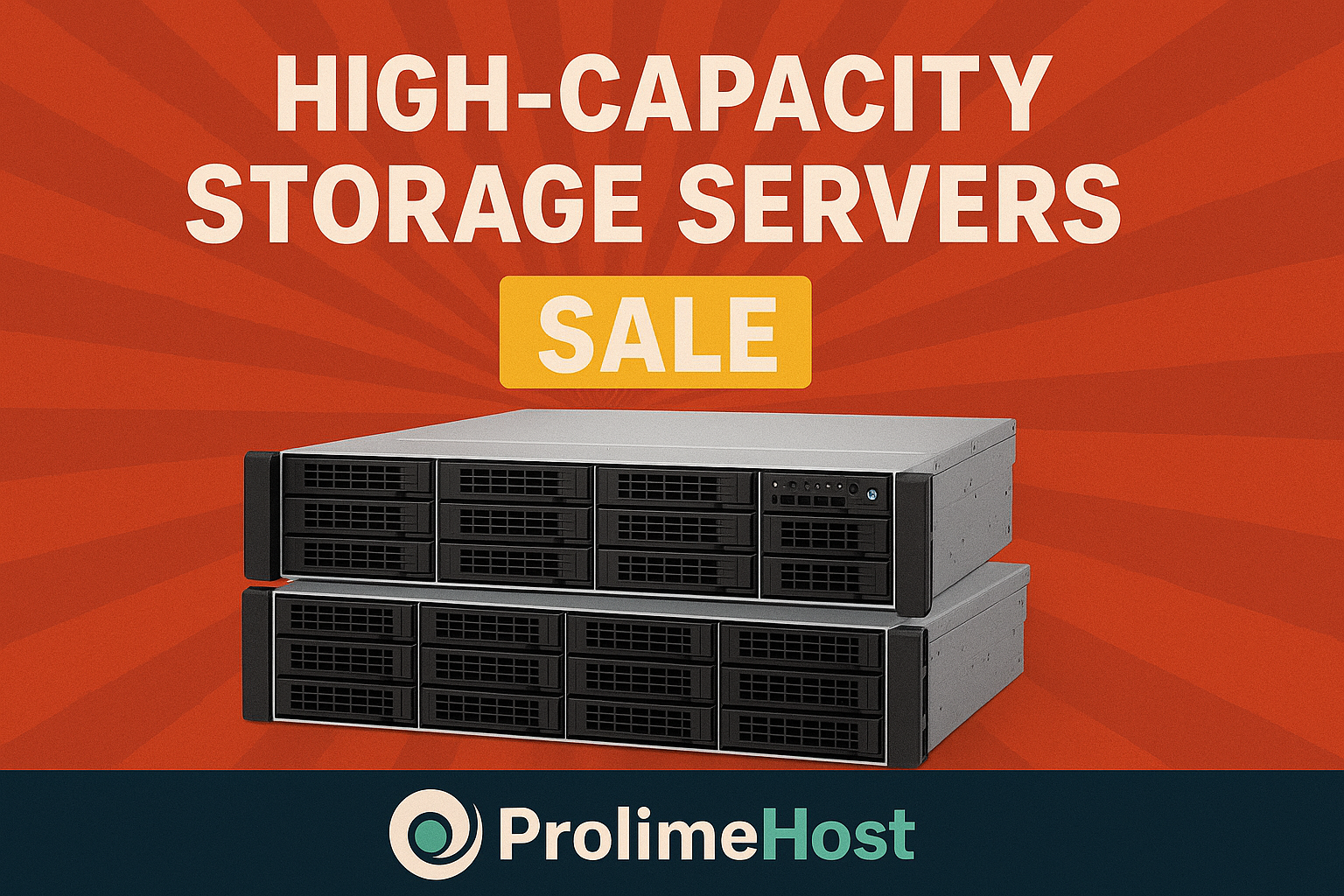
Small businesses today rely heavily on technology to stay competitive, manage operations efficiently, and serve customers better. However, traditional on-site servers often come with high upfront costs, complex maintenance, and limited flexibility. This can create challenges when businesses need to scale, secure data, or support remote teams.
A cloud-based server offers a practical solution to these issues. It provides virtual computing power, storage, and networking resources hosted in secure data centers, eliminating the need for physical hardware on-site.
With its scalability, cost efficiency, and remote accessibility, a cloud based server allows small businesses to run websites, manage applications, store files, and collaborate from anywhere while keeping operations secure and reliable.
For small businesses looking to avoid heavy IT investments and gain better performance, switching to the right hosting setup is key.
ProlimeHost offers dedicated servers and VPS hosting solutions designed to deliver high performance, secure data handling, and flexible management options. Whether you need reliable hosting for websites, databases, or applications, ProlimeHost provides customizable plans to fit your growing business needs.
What is a Cloud Based Server?
A cloud based server for small business is a virtual computing environment that allows companies to store data, run applications, and manage online operations without using physical hardware on site. It is hosted within secure data centers and delivers resources such as processing power, storage, and networking through the internet.
This server setup uses virtualization technology to divide a physical server into multiple independent virtual machines. Each virtual server has its own dedicated resources, enabling small businesses to scale up or down based on their requirements.
With a cloud based server, businesses can host websites, manage databases, handle emails, and share files securely while keeping costs manageable. The setup also supports remote access, making it easier for teams to collaborate from different locations without investing heavily in infrastructure.
Why Small Businesses Need a Cloud Based Server?
Small businesses face unique challenges when it comes to technology. They need reliable hosting solutions that support growth, protect data, and allow teams to work efficiently. A cloud based server helps meet these needs by providing flexible, secure, and cost-effective resources for everyday operations.
Scale Operations Without Expensive Hardware
Growing businesses often outgrow basic hosting solutions and need more power to handle traffic, applications, and data. A cloud based server makes it possible to increase computing resources like CPU cores, memory, and storage quickly, without buying additional physical hardware.
This allows businesses to keep up with increasing demand while avoiding long setup times and large infrastructure costs.
Improve Cost Efficiency and Reduce IT Overhead
Owning and maintaining physical servers can be expensive for small businesses. A cloud based server operates on a pay-for-what-you-use model, which eliminates the need for upfront investments in hardware and reduces long-term IT expenses.
Built-in management tools and automated updates reduce the workload on internal teams, allowing them to focus on running the business instead of maintaining servers.
Enhance Data Security and Reliability
Keeping business data safe is essential. A cloud based server is hosted in a secure data center equipped with strong protections like encryption, firewalls, and routine backups.
Advanced monitoring ensures threats are detected early, and redundant systems minimize the risk of downtime. This combination provides a reliable environment where important files and applications remain safe and accessible.
Enable Remote Access and Team Collaboration
Modern businesses often have employees working from multiple locations. A cloud based server allows staff to securely access files, applications, and tools from anywhere with an internet connection.
This makes it easier for teams to collaborate in real time, share updates instantly, and stay productive without being tied to one physical office.
Key Features of a Cloud Based Server for Small Business
A cloud based server offers small businesses the flexibility and performance needed to handle daily operations efficiently. Below are the main features that make it a strong choice for businesses looking to improve hosting capabilities and support future growth.
Virtualization and Flexible Resource Allocation
A cloud based server uses virtualization technology to divide a physical server into multiple virtual environments. Each virtual server operates independently with dedicated resources such as CPU, memory, and storage.
This setup allows businesses to adjust resources based on workload demands. Whether running websites, databases, or applications, resources can be increased or reduced easily without needing new hardware.
On-Demand Availability and Scalability
One of the main benefits of a cloud based server is its ability to scale quickly. Businesses can add more processing power, memory, or storage whenever demand increases.
This is especially useful during seasonal traffic spikes or when launching new applications. On-demand scaling ensures smooth performance while keeping costs under control, since companies only pay for the resources they use.
Global Accessibility and Low Latency
Cloud based servers are hosted in multiple secure data centers, allowing businesses to select locations closer to their customers. This reduces latency and improves website and application response times.
Global accessibility also means teams can securely log in from different locations to manage files, access tools, and collaborate without interruptions, improving productivity for distributed teams.
Common Uses of a Cloud Based Server in Small Businesses
A cloud based server supports a wide range of business needs, making it a practical solution for small companies that want flexibility and reliable performance.
Here are the most common ways small businesses use these servers:
Store and Share Business Files
Small businesses can use a cloud based server to securely store important files, documents, and media. Employees can access these files from any location with an internet connection.
This centralized storage system makes it easier to share information between teams, maintain version control, and improve collaboration without relying on physical storage devices.
Host Websites and Business Applications
Many businesses use cloud servers to host their websites and run applications critical to daily operations. From e-commerce platforms to internal management tools, a cloud server provides the necessary resources to handle traffic, maintain speed, and deliver consistent uptime.
The scalable nature of these servers ensures that websites and applications perform well even during periods of increased demand.
Run Databases and Email Servers
A cloud based server is ideal for running databases and email services. It offers the processing power and reliability needed to manage customer data, business records, and communication tools.
With high availability and secure access controls, businesses can ensure that sensitive data remains protected while being readily available to authorized users.
Backup and Disaster Recovery Solutions
Data loss can disrupt business operations and cause financial setbacks. Cloud servers provide automated backup options and disaster recovery solutions to help protect against unexpected failures, cyber threats, or accidental deletions.
Regular backups stored in secure data centers allow businesses to restore files quickly and continue operations without long downtime.
How to Assess Your Small Business Needs for a Cloud Based Server
Choosing the right cloud based server starts with understanding your specific business requirements. Assessing these needs helps select a server setup that supports current operations and future growth without overspending.
Determine Data Storage and Processing Power
Start by reviewing how much data your business handles daily. Large files, high-traffic websites, or resource-heavy applications require more storage and processing power.
Understanding these requirements helps in selecting a server configuration that can handle your workload smoothly without performance issues.
Identify Applications and Services to Host
List the applications and services you plan to run on the server, such as websites, databases, customer management tools, or communication platforms. This makes it easier to estimate the needed CPU, RAM, and storage while ensuring that the server supports all your critical business functions.
Address Security and Compliance Requirements
Data security should be a top priority for any small business. Consider the sensitivity of the information you manage and any regulatory requirements you must follow.
Choosing a server with strong security measures like encryption, firewalls, and routine backups helps protect against data breaches and ensures compliance with industry standards.
Plan for Long-Term Scalability
Your server should support not only current needs but also future growth. As your business expands, you may need more storage, bandwidth, or computing power. A scalable cloud based server allows you to upgrade resources easily without service interruptions or costly hardware changes.
How to Choose the Right Cloud Based Server Provider
Selecting a reliable cloud based server provider is essential for small businesses that want consistent performance and secure data handling. The right provider ensures smooth operations, scalability, and dependable support.
Evaluate Performance and Reliability
Start by reviewing the provider’s server infrastructure and uptime guarantees. A strong track record of stable performance and minimal downtime ensures that your website and applications remain accessible to customers at all times. Look for options with fast processing speeds, redundant systems, and reliable data centers.
Compare Pricing and Resource Flexibility
Pricing models vary depending on resources like CPU power, storage, and bandwidth. Choose a provider that offers transparent pricing and allows easy adjustments to server resources as your needs change.
This flexibility helps manage costs effectively while ensuring the server can handle periods of high demand without disruption.
Check Security Measures and Data Protection
Security is critical when hosting sensitive business information. Ensure the provider has measures such as firewalls, data encryption, routine backups, and monitoring tools to protect against cyber threats.
Providers with strong disaster recovery systems help keep your data safe and quickly restore services if issues arise
Review Support and Management Services
Responsive support is vital for resolving technical issues quickly. Check if the provider offers 24/7 support through multiple channels and provides management services for tasks like updates, monitoring, and troubleshooting.
Reliable support reduces downtime and ensures smooth day-to-day server management.
Steps to Set Up a Cloud Based Server for Small Business
Setting up a cloud based server for a small business involves several steps to ensure smooth performance and secure access. Following these steps helps create a reliable server environment that meets current and future needs.
Create an Account and Select a Suitable Plan
Start by registering with your chosen server provider. Review available plans based on your data storage, processing power, and bandwidth requirements. Select a plan that fits your current needs while allowing room for scaling resources as the business grows.
Configure Operating System and Server Resources
Once the account is active, choose the operating system that best supports your applications. Common options include Linux distributions or Windows Server. Define server resources such as CPU cores, RAM, and storage capacity to match your workload and performance requirements.
Choose Data Center Location
Select a data center location that is closest to your primary user base. Hosting servers near your audience reduces latency, improves loading speeds, and ensures compliance with regional data regulations.
Set Up Network and Access Controls
Configure network settings to manage traffic flow and establish secure connections. Set up firewalls, enable encryption, and define user access permissions to protect against unauthorized activity. Using secure login methods like SSH keys adds an extra layer of protection.
Deploy and Test the Server
After configuration, deploy the server and install necessary applications or tools. Test the setup by checking website loading times, application performance, and database connectivity. Regular monitoring ensures the server runs efficiently and remains ready for daily operations.
Conclusion
A cloud based server gives small businesses the flexibility and reliability they need to manage operations efficiently. It eliminates the cost and complexity of maintaining physical hardware while offering scalable resources, strong security, and the ability to support remote teams. From hosting websites and applications to securing data and improving collaboration, it provides a foundation for sustainable business growth.
Choosing the right hosting solution is critical to achieving these benefits.
ProlimeHost delivers high-performance dedicated servers and VPS hosting tailored for small and growing businesses. With fully managed services, secure data centers, and customizable server configurations, you can focus on running your business while ProlimeHost handles the technical side.
Take the next step in strengthening your online operations.
Explore ProlimeHost’s hosting plans today and build a reliable server environment designed for your success.
Frequently Asked Questions (FAQs):
What is the Main Difference Between a Cloud Based Server and Traditional Server?
A traditional server is physical hardware that a business must purchase, set up, and maintain on-site. A cloud based server, on the other hand, is a virtual environment hosted in a secure data center and accessed through the internet. It allows small businesses to scale resources quickly without managing physical equipment.
How Much Does a Cloud Based Server Cost for a Small Business?
The cost of a cloud based server depends on the resources selected, such as CPU power, memory, storage, and additional features like backups or security tools. Small businesses can start with a basic plan and adjust resources as needed, which helps manage costs effectively without paying for unused capacity.
Can a Business Move to a Cloud Based Server Without Downtime?
Yes. Most providers offer migration tools and support services that help transfer data, applications, and websites to a cloud based server with minimal or no downtime. Careful planning, scheduling during low-traffic hours, and testing the new setup before switching completely ensures a smooth transition.
How Does a Cloud Based Server Improve Remote Work?
A cloud based server enables employees to access business files, applications, and tools securely from any location with an internet connection. This supports remote work by allowing teams to collaborate in real time, share updates instantly, and stay productive without relying on a physical office or local network.




